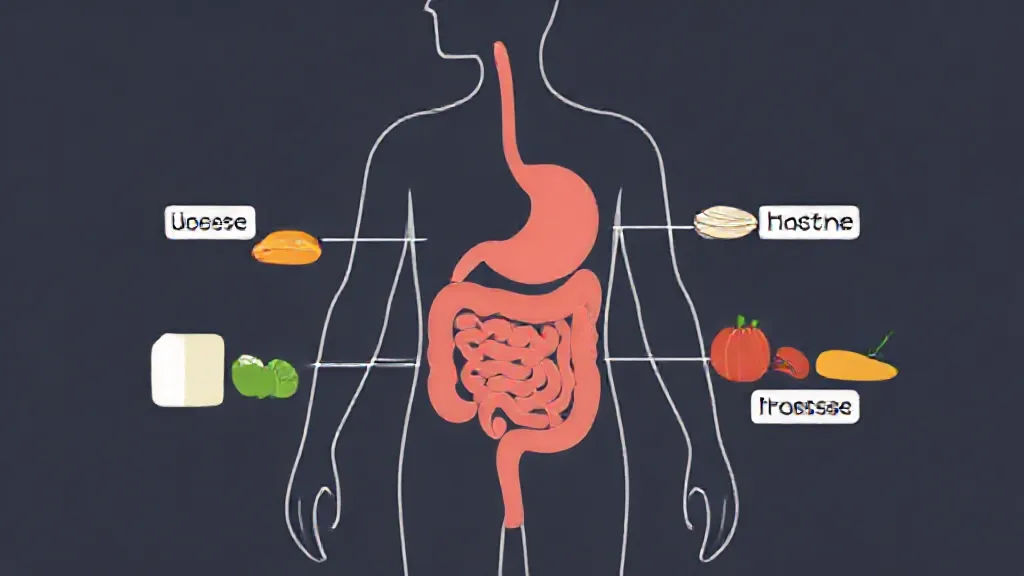Food intolerances are a growing concern for many individuals, impacting their overall health and quality of life. Unlike food allergies, which involve the immune system, food intolerances generally do not trigger an immune response but can lead to significant discomfort and digestive issues. Understanding the underlying causes of food intolerances is crucial for managing symptoms and improving health outcomes.
The Biological Mechanisms Behind Food Intolerances
At the core of food intolerances is the body's inability to properly digest certain foods. This can stem from a variety of factors, including enzyme deficiencies, where the body lacks specific enzymes needed to break down certain substances. For example, lactose intolerance occurs when individuals do not produce enough lactase, the enzyme required to digest lactose found in dairy products.
This leads to symptoms such as bloating, gas, and diarrhea after consuming dairy.
Genetic Predispositions and Family History
Genetics plays a significant role in food intolerances. Certain populations have higher rates of specific intolerances due to evolutionary adaptations.
For instance, many people of East Asian descent have a higher prevalence of lactose intolerance, which is thought to be linked to historical dietary patterns. Family history can also be a predictor; if a parent has a food intolerance, their child may be more likely to develop one as well.
The Role of the Gut Microbiome
Recent research highlights the importance of the gut microbiome in food intolerances.
The gut microbiome consists of trillions of microorganisms that aid in digestion and influence immune function. An imbalance in gut bacteria can lead to digestive issues and food intolerances. For example, individuals with a diverse and healthy microbiome may better tolerate certain foods compared to those with dysbiosis, where harmful bacteria outnumber beneficial ones.
Environmental Factors and Lifestyle Choices
Environmental factors, including diet, stress, and exposure to toxins, can contribute to the development of food intolerances. A diet high in processed foods and low in fiber can disrupt gut health, making individuals more susceptible to intolerances. Stress and anxiety can also exacerbate digestive issues, leading to symptoms that mimic food intolerances.
Lifestyle choices, such as smoking and lack of physical activity, further compound these problems.
Identifying Food Intolerances: Symptoms and Testing
Recognizing food intolerances can be challenging, as symptoms often overlap with other gastrointestinal disorders. Common symptoms include bloating, abdominal pain, and irregular bowel movements.
To identify specific intolerances, individuals may undergo elimination diets or food sensitivity testing. These methods can help pinpoint problematic foods, allowing for better management of symptoms.
The Impact of Food Intolerances on Daily Life
Living with food intolerances can significantly affect an individual's lifestyle, from meal planning to social interactions.
Many people find themselves avoiding certain foods or restaurants, leading to feelings of isolation. Education and awareness about food intolerances are essential for fostering understanding and support among friends and family, as well as in broader social settings.
Management Strategies for Food Intolerances
Managing food intolerances often involves dietary adjustments and lifestyle changes.
Keeping a food diary can help individuals track their symptoms and identify triggers. Additionally, consulting with a healthcare professional, such as a registered dietitian, can provide personalized guidance on nutrition and meal planning. In some cases, enzyme supplements may aid in digestion, allowing individuals to enjoy a wider variety of foods without discomfort.
Future Research Directions in Food Intolerance Studies
As awareness of food intolerances grows, so does the need for further research. Future studies may focus on the genetic basis of intolerances, the role of the microbiome, and potential therapeutic interventions. Understanding the complex interplay between genetics, environment, and gut health will be crucial in developing effective strategies for prevention and management of food intolerances.
